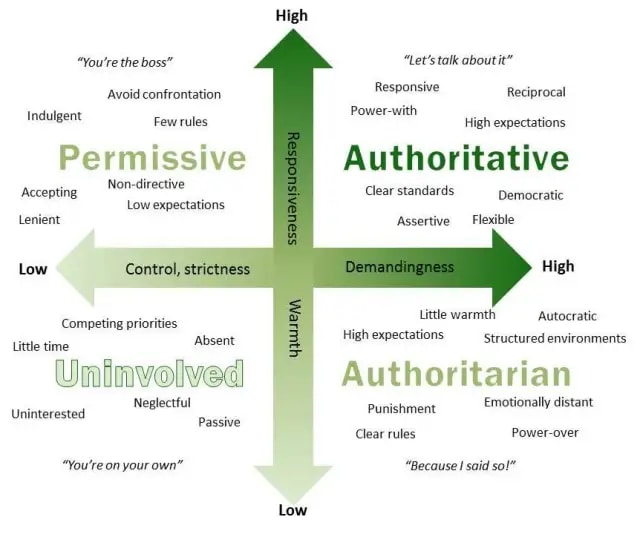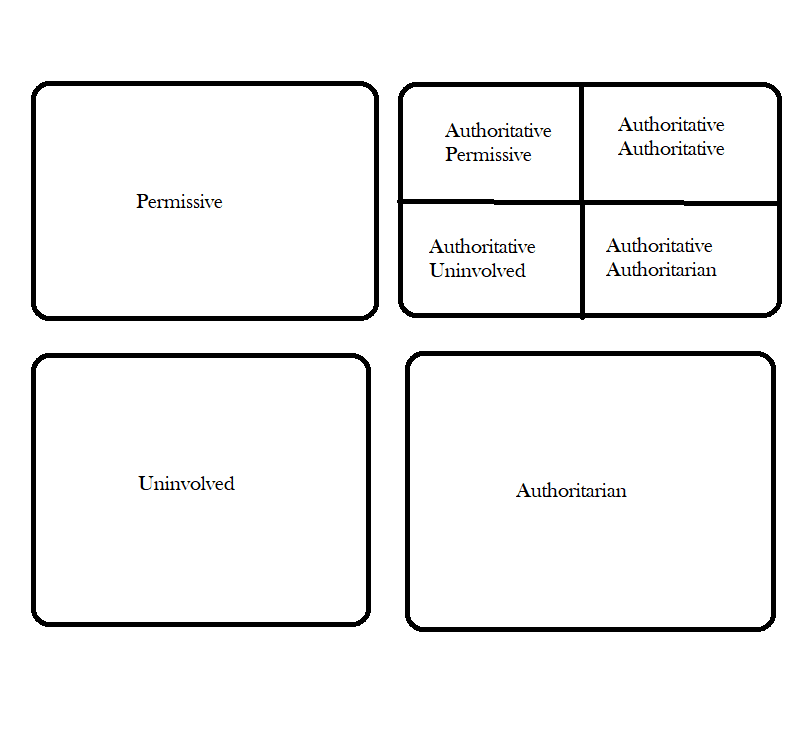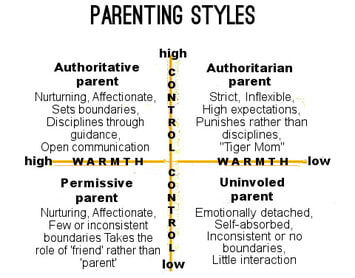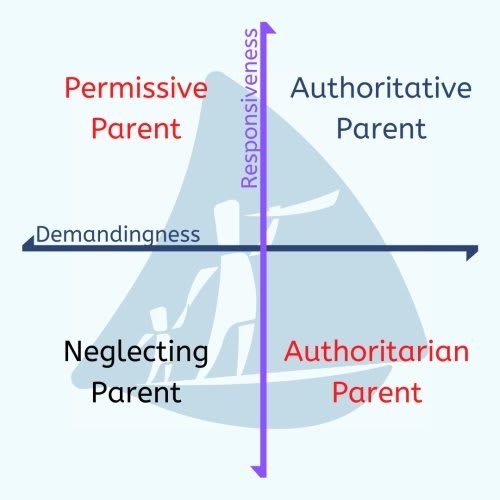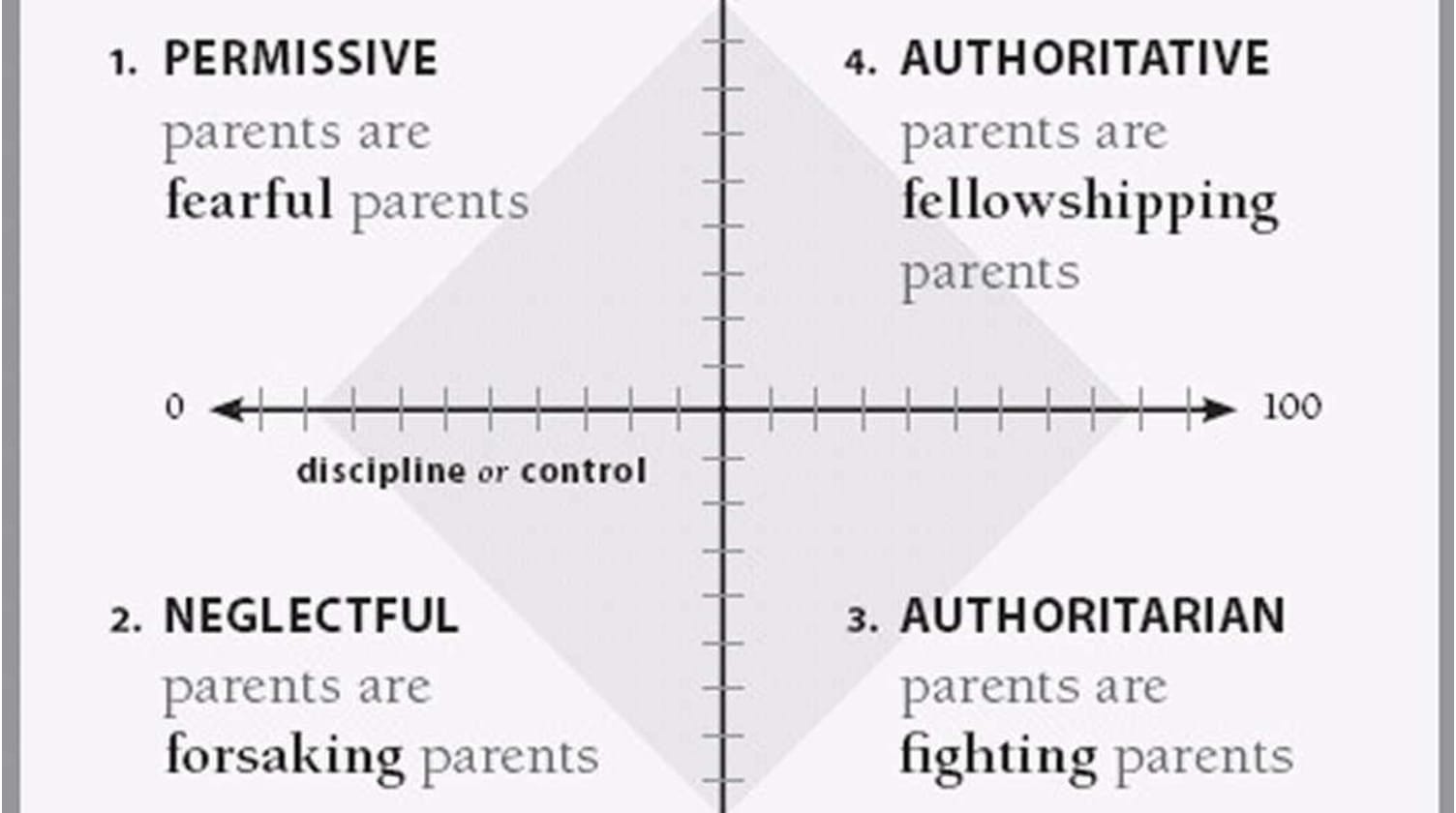Unabridged History of Global Parenting
post by CrimsonChin · 2023-07-13T16:49:49.747Z · LW · GW · 2 commentsContents
Epistemic status: I am not a historian or a psychologist. I am just a parent who read a few books. This is less formal than most lesswrong posts.
Disclaimer
The Chart
Unabridged History of Global Parenting
1920s
1940s
1960s
1980s
2000s
Free-Range Parenting
Helicopter Parenting
2020s
The Villain of This Story
The Future
None
2 comments
Epistemic status: I am not a historian or a psychologist. I am just a parent who read a few books. This is less formal than most lesswrong posts.
Disclaimer
From the beginning of time, parents have loved their children. I am in no way making fun of any parenting technique here. I believe all parents are just doing the best they can with the information they have.
The Chart
Before delving into my unabridged history of global parenting, I want to discuss a chart that you will come across everywhere. On one axis is the level of responsiveness a parent shows towards their child's wants and needs, while on the other axis is the level of demands placed on the child by the parent.
Psychologists have categorized each quadrant as follows:
- High warmth and high control: authoritative
- Low warmth and high control: authoritarian
- -High warmth and low control: permissive
- Low warmth and low control: uninvolved
Although I have some reservations about this chart, it serves as an acceptable starting point. Keep this chart in mind as I will refer to it throughout my unabridged history of global parenting.
Unabridged History of Global Parenting
My unabridged history will begin, naturally, in the 1920s. By "global," I mean that I will solely be discussing trends in the United States.
1920s
Ah, the roaring twenties. World War I is over, women have gained the right to vote, and they are embracing new styles with knee-length skirts, bobbed hair, and waving their fingers about. Motion pictures are captivating audiences, and Betty White is born. Things are looking up.
In the 1920s, J.B. Watson publishes a parenting book titled "Psychological Care of Infant and Child." He is one of the founders of what we now call behaviorism. Behaviorism represents a shift from psychologists focusing on the mind to focusing on behaviors. Watson believed that behaviors shape us and that by controlling behavior, he could completely transform a person. He argued that if he had a healthy baby, he could mold their behavior to ensure they would become a doctor, lawyer, or even a flapper dressmaker if he so desired.
Side note: Ethical standards were not as developed at the time, allowing Watson to conduct certain experiments to prove his methods. He found a child who liked rats, and every time the child saw a rat, he would ring a loud and scary bell, eventually instilling fear in the child. Even when the bell was removed, the child remained afraid of rats. Voila, the behavior changed! Unfortunately, Watson never reversed the fear of rats in that poor child.
Watson cautioned against mothers showing too much care, advocating for emotional detachment. "Never hug and kiss them or let them sit on your lap. Shake hands with them in the morning. Give them a pat on the head if they have done an exceptionally good job on a difficult task." According to Watson, displaying affection for your children would make them dependent, weak, and poorly behaved.
As you can imagine, this parenting approach emphasized control without warmth. If we were to place it on the chart, it would fall under low warmth and high control—a clear authoritarian category.
In hindsight, many psychologists argue that this approach can lead children to become what their parents want them to be, rather than embracing their own desires. It often results in children with low self-esteem, insecurity, a lack of creativity, and an inability to handle failure.
I initially intended to focus solely on the United States, but it's worth noting that other cultures and countries may embrace an authoritarian approach without experiencing the negative side effects. So, Hmmmmm?
1940s
It's 1946, and let's officially call World War II the last world war. Everyone is happily buying houses and going about their normal 1946 activities. I must admit, I'm not a history buff.
Introducing our savior, 🖖 Spock.
Dr. Benjamin Spock emerges with "The Common Sense Book of Baby and Child Care," which receives widespread acclaim. Okay, let's be honest, it nearly outsold the Bible in one year. Fun fact: he even ran for president one year, although *spoiler alert* he didn't win.
This book accomplished a couple of important things:
- It encouraged mothers to trust their instincts.
- It emphasized the importance of showing love for their children.
That's it. While the book reads like a manual on child-rearing, it often leans towards the idea of "trust yourself, you know more than you think." The groundbreaking aspect was the validation of showing love and affection to children. This resonated with many parents and led to a movement towards more compassionate and empathetic care.
This shift pushed the needle towards authoritative parenting—high warmth and high control. Psychologists who refer to this chart go crazy about this section. In essence, I believe this chart was developed to illustrate why authoritative parenting is the best approach. In every other quadrant, negative outcomes are associated, but in this section, the negative outcome is that "your kids may turn out TOO awesome." I'll discuss my personal issues with the chart later, perhaps. But for now, we find ourselves in the authoritative quadrant.
It's important to note that while this book gained significant popularity at the time, it takes time for perspectives to change, and not all parents fully embraced its principles. Parenting, in general, still leaned heavily towards behavioral approaches, and there were differing opinions on how much warmth should be shown to children.
1960s
This doesn't quite fit within the rest of this post since it's more about a "learning" methodology than parenting, but Montessori learning gains significant popularity during this time. The interest in Montessori education waxes and wanes. It originated in the early 1900s, arrived in America in 1912, and experienced a major resurgence in the 1960s.
Montessori encompasses various aspects and is somewhat off-topic, but it's worth mentioning.
Fun fact: Montessori is NOT trademarked, which means you could label anything as Montessori. Coming soon to a neighborhood near you: the first Montessori McDonald's! I've heard the Montessori Starbucks is quite an experience too. And don't forget to visit the Montessori movie theater!
1980s
Dr. Spock's influence gave rise to a movement now known as "attachment parenting." In 1982, the book "Attachment Parenting" by William Sears became the definitive manual for attachment parents.
Attachment parenting built upon Dr. Spock's ideas of love and compassion. However, it went further by asserting that additional steps should be taken to foster a strong emotional bond between the parent and the baby. These steps included skin-to-skin contact, increased baby holding, extended breastfeeding, and co-sleeping. Essentially, it emphasized both physical and emotional closeness with the baby, aiming for a secure emotional attachment.
This approach still falls under the authoritative parenting style. I believe it resulted in a greater emphasis on the warmth axis.
While this trend was significant, I'm uncertain if it was the normative approach. It certainly changed the parenting landscape, but I'm not sure if the majority of mothers identified themselves as attachment parents in the 1980s.
2000s
Free-Range Parenting
After the era of raising Tamagotchis, a new direction in parenting emerged. So far, I have covered mainstream movements, but this movement is more of an outgroup phenomenon. Only time will tell if it becomes the new normal.
While earlier chapters focused on pushing the "warmth" axis, some individuals decided to shift the focus to the "control over your kids" axis.
Yes, we understand that warmth is important. It's crucial to love your kids. Perhaps some parents even take it to the extreme by coddling their children until they turn 18. Let them figure out the right amount of warmth, while we explore the idea of reducing expectations and control over our kids.
Thus, the "free-range" parenting movement was born. Alongside it, we encountered other cutesy-named parenting approaches like "lighthouse parenting" or "gentle parenting." While these methods have their unique characteristics, they all share one common factor: less control over our kids and more emphasis on freedom.
This is where the traditional chart becomes less useful. It was created to persuade people to adopt authoritative parenting, thus portraying other quadrants in a negative light. The message conveyed is, "Look, everyone wants to be in the authoritative parenting quadrant!" Consequently, different parenting styles now argue that they fall within the far boundaries of the authoritative parenting quadrant, rather than being labeled as permissive parenting. The clear bias in this chart renders it almost completely unusable. It seems we need a new chart to divide the authoritative or "correct" parenting style into four new quadrants, allowing for a comprehensive discussion.
So, there you have it. Free-range parents can be considered authoritatively permissive.
Helicopter Parenting
While free-range parents allow their kids to ride New York trains independently, another type of parent is there to yell at them to stop.
Helicopter parents, bulldozer parents, lawnmower parents—different parenting styles often associated with negative connotations that share a common thread: high levels of involvement.
Not many parents willingly identify themselves as helicopter parents; it is often the result of authoritative parenting taken to the extreme. It is almost a natural progression when charts list absolutely no negative side effects of too much control or warmth.
The potential downside here is that children may not learn problem-solving skills if their parents constantly intervene or remove obstacles from their path.
This falls into a new category I would call "authoritatively authoritative."
2020s
This is the present year in which I am writing. As this post will be a timeless masterpiece, if you're reading this in 2100, it will be the year stated above.
There are countless parenting books—perhaps too many, to be honest. Different parents hold strong views, and you would think that with increased connectivity, we would converge on a popular parenting structure. However, it feels more polarized than ever. Seeking parenting advice can be a dreadful experience.
Reflecting on this history, I've come to realize that parenting has undergone significant changes. I have more in common with parents of today than I do with parents from the 1920s. Any differences that make me feel judged are often hot-button issues that elicit strong feelings, but strong feelings don't always align with important questions. This serves as a friendly reminder to be less judgmental towards others, something I will strive to do more often: after this next section.
The Villain of This Story
These
stupid
charts
Forget all the positive things I said earlier; my REAL takeaway is that someone biased these charts to convey a clear winner while attempting to teach a lesson. The bias, although serving an important purpose at the time, renders the charts useless for future reference. When negative labels are used for certain parenting styles, people never introspect to determine if they fall under those categories. Consequently, the charts deprive them of any self-realization they could have gained.
Here's an example:
If I were to conduct research and discover that cracking your knuckles causes arthritis, my abstract would be as follows:
"Some individuals crack their knuckles a few times, and we will call them 'beautiful geniuses.' On the other hand, there are those who crack their knuckles excessively, whom we refer to as 'ugly idiots.' More research is needed to determine the threshold, but if you identify as an 'ugly idiot,' you are at risk for various negative consequences. Reflect deeply and seek help if you truly believe you fall under the category of an 'ugly idiot'."
The Future
It seems we have explored various parenting approaches, except for "unavailable parenting." Is anyone willing to try that with me?
2 comments
Comments sorted by top scores.
comment by Gordon Seidoh Worley (gworley) · 2023-07-13T19:15:02.382Z · LW(p) · GW(p)
I like this topic and would love to see a more comprehensive post about various parenting theories, describing them and comparing and contrasting them. This is a lighthearted tour, but I'd love to see a more thorough version of this post!
Replies from: CrimsonChin↑ comment by CrimsonChin · 2023-07-13T23:01:10.830Z · LW(p) · GW(p)
Thanks. I am reading a lot of parenting books and I have found that I was missing the context in which they were written. This was the result of my research. My hope is to bring this background context to future book reviews which will be more substantial and thorough. Appreciate the comment!
